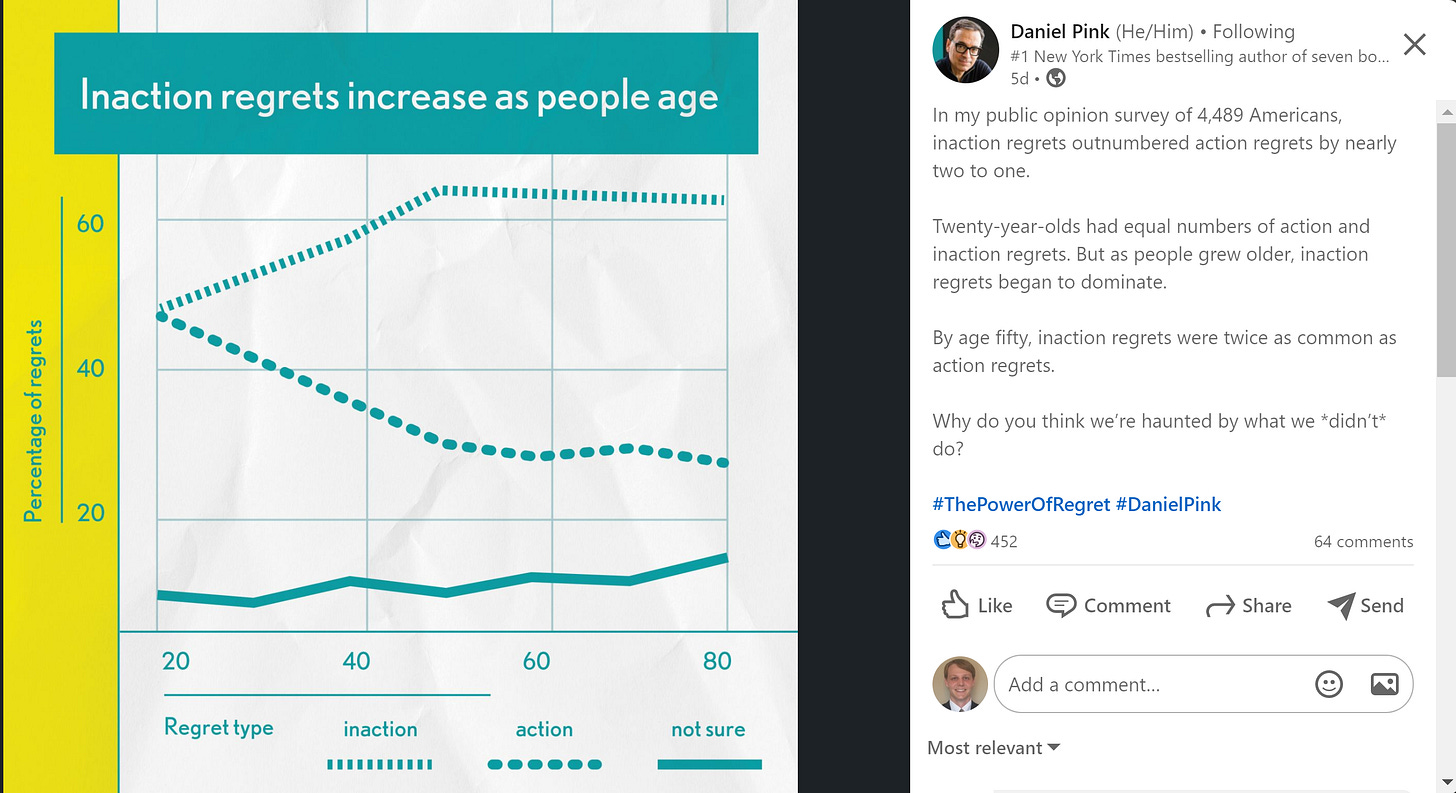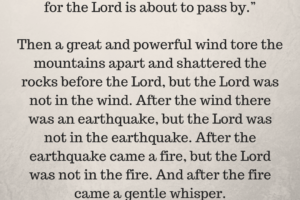Table of Contents
Bad Dad Jacob
Does anyone else feel like they ripped off the life and times of Jacob when they show the Real Housewives? No? Just me? Fine. It’s not like I watch the show either. I mean, can you imagine the confessional of Bilhah or Zilpah? It may not be satisfying like their mistresses Leah and Rachel, but come on, Gretchen and Tamra can’t hold a candle to these women feuding. Real Housewives? More like too many lovers in the tent.
Anyways we were talking about fatherhood or faith or something? Right, faith… bad dads.
Yeah, Jacob may have been a prolific progenitor, but he, like many, wasn’t a great father. It passed down from Abraham and skipped Isaac a little, but the seeds of favoritism were there. Ten of the brothers eventually fake Joseph’s death because he was Dad’s favorite for absolutely no reason other than his mom was hot. I mean 14 years’ worth of work to get laid by that woman. She must’ve been fire.
But the life and times of Jacob can be summed up in one epic event. And it is by far one of the most passed-over stories of Genesis. Few theologians are willing to dive in fully. Why? It has everything in it. You could call it Games of Thrones B.C. Oh right, another show that I definitely did not watch eight seasons. The books are better (and steamier) just saying.
Dinah Backstory
Before beginning, how many daughters get mentioned in the O.T. annals before this moment? The ones who get names are married to prominent sons of the story. And isn’t it interesting that a man who brings so much focus on his 12 sons has a whole story about his daughter?
So let’s break down the story of Dinah, the daughter of Jacob. Dinah is the daughter of Leah, Jacob’s first wife through some shenanigans with Laban. She is at least his seventh child by birth order, more likely further down than that, making her even less important by ancient standards. And that’s all we ever get to know about Dinah outside the story. It is all we get to know inside the story other than she is raped and then wooed. So let’s get to the fleshy stuff.
Genesis 34
So, Jacob is living in Canaan with his gargantuan brood. At the time, he is living near a town of Hivites. Remember, when both Abraham and Isaac did this, they claimed their wives were their sisters. Solid move by the patriarchs when God had already blessed them. Practically, Jacob has too many wives to pull this off, and with the wrangling of sons, he is probably just tired. So it’s nice to live near a town where Jacob can send the boys out with the flocks. Of course, I send my son to preschool to learn how to behave and interact with other humans, and it has nothing to do with how exhausting parenting is. But, interestingly, Jacob has overcome this fear of the locals that plagued his father and grandfather.
So, Shechem, the favored son of Hamor, the ruler of the town, is checking out Dinah, and he decides he can’t wait. He takes Dinah into his harem and rapes her. The text then backtracks a little on the rape. Shechem loves Dinah. He tries to woo her. And at that point gets his dad involved to pay the bride price for Dinah so everything can be on the up and up. Something I think we can all take away from this first bit. Rape is rape. Don’t believe me? Watch The Last Duel.
If a woman says she has been raped, that is the case. Want to try and twist it a different direction – nope – because Dinah’s brothers near the end rescue her from Shechem’s house. So we know that rape is the case here, and the real reason Shechem is trying to pay the bride price is probably two-fold 1) cover guilt. 2) Win Dinah’s heart. Maybe like Jacques Le Gris, he thought Dinah loved him, but guess what? When you lead by whipping it out of your pants, it isn’t going to end well—free advice backed by history.
Bad Dad Alert
So what does Jacob do when Dinah doesn’t show up for dinner? When he finds out his daughter is in the hands of the local ruler?
Nothing.
He sits on it. Now, there are very pragmatic reasons for this. Jacob is surrounded by women who are under his care. His sons and many of the men who assist with the flocks are out grazing the herds. But, he allows his daughter to be had by another man without her consent. I don’t know that this patriarch has a lower point—the failure to put ourselves at risk for the ones with love often couples with our greatest regrets. As Daniel Pink points out, it is not the actions we take that we come to regret, but rather the actions we fail to take.

The Fallout
Hamor, at the behest of his son, comes to Jacob. He asks to pay the bride price. Now, remember this is a humbling moment for Hamor. A ruler is coming out to a shepherd at his gate to negotiate what the ruler must pay to make everything ok. But this act of humility is worth it. Suppose Hamor can get the sons and daughters of Jacob to intermarry. In that case, they can eventually lay claim or grow to incorporate this prolific family into their town and eventually under their rule.
But Jacob and his sons are up to something too. Before they are willing to negotiate the bride price, they mark the Hivite men under the covenant of God. The Hivites get circumcised. To the Hivites, one generation of pain is nothing to the potential greatness before them. But their deception and manipulation are countered by the sons of Jacob. Simeon and Levi, older brothers of Dinah, come to her rescue, not in the middle of the night as gallant rogueish heroes. But in a massacre, the men are sick from the circumcision, and they plunder the Hivites like thieves. They kill every male. And carry off Dinah along with the loot and women of the Hivite town.
Now Jacob is pissed. He is worried that the sons’ overreaction to the rape will cause the Canaanites to destroy the Israelites. And the fear of the Canaanites that Jacob overcame initially is instilled once again. It is passed down to a new generation, a demon of the patriarchs’ own creation.
What?!?!?!?!?!??!?!?!?!?!?
So what is going on here? What is going on with the sons? Why highlight this story as the centerpiece of Jacob’s? Why not Joseph? At least there was a play about that story? Why not stick with the feuding wives? Why not even talk about the angel wrestling match?
I am glad you asked those questions because we will talk about the angel wrestling match.

ANGEL DEATHMATCH!!!!!!!!!!!!!!!!!!!!!!!!
So on the eve of reunion with Esau, Jacob sends everyone across a river and then catches an angel (God?, the divine?) and wrestles him through the night. The divine being eventually escapes by touching Jacob’s hip, removing the bone from its socket. Jacob’s name changes to Israel after the match. Israel is able to live out of peace from this interaction with the divine. That’s why he is even so close to the Hivite town.
But let’s get some much-needed perspective on the life of Jacob at this point, knowing what comes later (Dinah’s story) and right at this moment of wrestling. This perspective comes to us from German poet Rainer Maria Rilke. You can find the whole poem The Man Watching here. But let’s land in the last stanza.
“Whoever was overcome by this angel
(who so often declined the fight),
he strides erect and justified
and great out of that hard hand
which, as if sculpting, nestled round him.
Winning does not tempt him.
His growth is: to be the deeply defeated
by ever greater things.”
Ever Greater Foes
So I had a lot of trouble finding a solid through-line in Jacob’s life other than the power of deception. But saying deceiving is terrible is the same as saying lying is wrong. It won’t stop anyone from doing it and is generally unhelpful when we do it all the time as dads.
Then I stumbled across this poem by listening to a conversation between Carey Nieuwhof and Michael Stanier. It was a throwaway comment but led me to this stanza, and the more I have reflected on it, the more I see the line Rilke picked up. Jacob manipulated and deceived his brother. He then attempted to begin his new life with his extended family in honesty. The demon of deception followed him in the forms of his uncle, then by his wives, until he reached this point of wrestling with the divine.
Jacob’s defeat by ever greater enemies demonstrates the growth achieved in failure. If ever greater enemies defeat Jacob, he overcomes those trials only to be dominated by something stronger still. Jacob does not get involved in the petty. Rather he concerns himself with ever-growing needs and pain points, which is the source of his anger at his sons. He had the opportunity to lose to the Hivites and thus win by naming them the people of God through circumcision. What a chance to spread divine grace rather than manipulating them for extra power. However, his sons control the situation in their favor. And Dinah is rescued in their mind.
Back to Dinah
But, riddle me this. Who will marry Dinah now? Who will sleep with her to provide for her children in her old age? Will these brothers, who we later find out aren’t above killing their siblings, care for their sister? Consider Judah and Tamar. That story doesn’t paint a good picture for the strength of family connection passed down. While the rape is a hard pill to swallow, and Jacob is an asshole for being so silent about it, consider the loss upon loss for Dinah. Is it not an even worse moment that Jacob could not control his sons? Is it even worse than the trait of deception is passed down? Then, consider the ill-will spread amongst the people of Canaan for the family of Israel, which only serves to lessen Dinah’s prospects.
Jacob works to avoid all this mess by not manipulating the playing field. Instead, Jacob learns how to succeed through defeat. Jacob understands that greatness is not achieved by petty machinations but by overcoming them through loss.
Faithful Fatherhood
So how does that work in our faithful fatherhood? Who is humble enough to lose?
Here is the way I see it. Most of us fight straw-men. We joust windmills from our past victories. Rather than engaging the greater foes of real fatherhood like poopy diapers, tears of discipline, and teenage deceit, we will always succumb to. Am I advocating for rolling over and losing every time? Of course not! We fight and lose to ever greater enemies precisely because we overcome them. It is not our ability to manipulate outcomes that gain us victory but our ability to grow stronger and stronger through the humiliation of defeat. The insight of faith provides strength.
And how many people will teach you to lose? How many people will tell you to win no matter the cost? I will tell it to you because I have striven far enough in my faith to find it true. We don’t succeed at being a dad by winning. We overcome by losing to ever greater enemies. And who is more significant than our children?
It is not the winning that tempts Jacob. He cares not for it. Instead, his sons stymie a humble growth opportunity in the story of Dinah. But that is where he treads too far. In pursuit of his own greatness, he fails to accept defeat by his children. He has seen the face of God and has lived and overcome cheating uncles, bickering wives, and a deeply wounded brother. He has fought the divine and lived even though still defeated but cannot get out of his way for his children.
That is where the story ends. A man too great to step aside for his children to prosper. A man too great to put himself at real risk for his daughter. Jacob betrays his faith. He betrays his success, holding on to it to the detriment of what matters.
Take the L from the Ever Greater Foe
As fathers, we learn from Jacob to lose humbly and overcome. But Jacob could not yield to his children nor risk it all for them. We overcome the demons of our own design by losing over and over again. So we can push our children beyond us from our vulnerability.
I assert that we are not to grow so great that we cannot humbly lose to greater enemies. Jacob wanted to lose to the Hivites. But they were not the greater enemy in this story. They were not what he was wrestling with. He was already greater than them. We know this because he did not fear them as his father and grandfather had. His greater foe was to pass the torch on to his children. To teach them how to lose. And when Dinah is raped, the opponent doesn’t demand silence. It requires that we wrestle them to the ground. Either we fight our demons, or fail to be blessed.
So can you humbly lose a fight? Do you have the humility and the strength to take a loss? Can you get back up when the divine shoves you down, dislocates your very place of strength? Can you rise again to overcome? Jacob does, and it is the power of his story. The power of his story is the risk he takes for the blessing.
What foe are you fighting?
But his bad-dad moment with Dinah resides in his inability to risk it all. He doesn’t wrestle the Hivites to the ground. So he fails with his daughter and his sons. His faith has taken him away from his family. This is why God takes a minute to reconnect and affirm Jacob. Not out of success, but failure does God reaffirms his blessings to the patriarch.
So do you have the humility to take the loss? Or would you prefer jousting against the windmills of your past victories as hollow and shallow as the wind?
What foe are you fighting? We benefit from connection and encouragement being only a few keystrokes away today. If you aren’t in battle maybe someone else is. Feel free to share this with someone.







